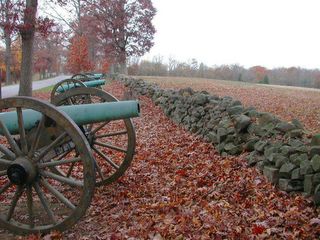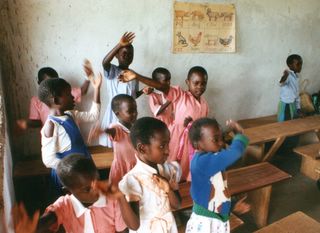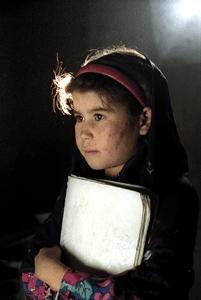What do I know of Calvary love?
by Amy Carmichael
if…I have not compassion on my
Fellow servant
Even as my Lord had pity on me,
Then I know nothing of Calvary love.
if…I belittle those I am called to
Serve
Talk of their weak points
In contrast perhaps with what I
Think of as my strong points.
If I adopt a superior attitude,
Forgetting “who made thee to
Differ? And what hast thou that
Thou hast not received?”
Then I know nothing of Calvary love.
if…I can easily discuss the shortcomings
And sins of any;
If I can speak in a casual way even
Of a child’s misdoings,
Then I know nothing of Calvary love.
if…I find myself carelessly taking
Lapses for granted,
“Oh, that’s what they always do,”
“Oh, of course she talks like that, he acts like that,”
Then I know nothing of Calvary love.
if…I can enjoy a joke at the expense of
Another;
If I can in any way slight another in conversation,
Or even in thought,
Then I know nothing of Calvary love.
if…I can write an unkind letter,
Speak an unkind word,
Think an unkind thought without
Grief and shame,
Then I know nothing of Calvary love.
if…I do not feel far more for the grieved
Savior than for my worried self
When troublesome things occur,
Then I know nothing of Calvary love.
if…I know little of His pitifulness
(the Lord turned and looked upon
Peter),
If I know little of His courage of
Hopefulness for the truly humble
And penitent
(He saith unto him, ‘Feed My
Lambs.”),
Then I know nothing of Calvary love.
if…I deal with wrong for any other
Reason than implied in the words,
“From His right hand went a fiery
Law for them. Yea, He loved
The people:”
If I can rebuke without a pang,
Then I know nothing of Calvary love.
if…in dealing with the one who does not
Respond,
I weary of the strain, and slip
From under the burden
Then I know nothing of Calvary love.
if…I am perturbed by the reproach and
Misunderstanding that may
Follow action for the good
Of souls for whom I must give
Account;
If I cannot commit the matter and go
On in peace and silence,
Remembering Gethsemane and the
Cross,
Then I know nothing of Calvary love.
if…I cannot catch “the sound of noise
Of rain” long before the rain falls,
And, going to some hilltop of the spirit,
As near to my God as I can,
Have not faith to wait there with
My face between my knees,
Though six times or sixty times I
Am told, “there is nothing,”
Till at last “there arise a little
Cloud out of the sea,”
Then I know nothing of Calvary love!
if…my attitude be one of fear, not faith
About one who has disappointed
Me;
If I say, “Just what I expected,” if a
Fall occurs,
Then I know nothing of Calvary love.
if…I do not look with eyes of hope on
All in whom there is even a faint
Beginning,
As our Lord did, when,
Just after His disciples had
Wrangled about which one of them
Should be accounted the greatest,
He softened His rebuke with those
Heart-melting words, “Ye are
They which have continued with
Me in My temptations,”
Then I know nothing of Calvary love.
if…I cast up a confessed, repented, and
Forsaken sin against another,
And allow my remembrance of that
Sin to color my thinking and
Feed my suspicions,
Then I know nothing of Calvary love.
if…I have not the patience of my
Savior with souls who grow
Slowly;
If I know little of travail (a sharp
And painful thing) till Christ be
Fully formed in them,
Then I know nothing of Calvary love.
if…I sympathize weakly with weakness,
And say to the one who is turning back
From the cross, “Pity thyself;”
If I refuse such a one the sympathy
That braces
And the brave and heartening word
Of comradeship,
then I know nothing of Calvary love.
if…I cannot keep silence over a
Disappointing soul
(unless for the sake of that soul’s
Good or for the good of others it
Be necessary to speak),
Then I know nothing of Calvary love.
if…I can hurt another by speaking
Faithfully without much
Preparation of spirit,
And without hurting myself far
More than I hurt that other,
Then I know nothing of Calvary love.
if…I am afraid to speak the truth, lest I
Lose affection,
Or lest the one concerned should
Say, “You do not understand,”
Or because I fear to lose my
Reputation for kindness;
If I put my own good name before
The other’s highest good,
Then I know nothing of Calvary love.
if…I am content to heal a hurt slightly,
Saying “Peace, peace,” where there is
No peace;
If I forget the poignant word “Let
Love be without dissimulation”
And blunt the edge of truth,
Speaking not right things but
Smooth things,
Then I know nothing of Calvary love.
if…I fear to hold another to the highest
Goal because it is so much easier
To avoid doing so,
Then I know nothing of Calvary love.
if…I hold on to choices of any kind,
Just because they are my choice;
If I give any room to my private likes
And dislikes,
Then I know nothing of Calvary love.
if…I put my own happiness before the
Well-being of the work entrusted
To me;
If, though I have this ministry and
Have received much mercy, I
Faint,
Then I know nothing of Calvary love.
if…I am soft to myself and slide
Comfortably into the vice of
Self-pity and self-sympathy;
If I do not by the grace of God
Practice fortitude,
Then I know nothing of Calvary love.
if…I dominate myself,
If my thoughts revolve around
Myself,
If I am so occupied with myself I
Rarely have “a heart at leisure
From itself,”
Then I know nothing of Calvary love.
if…the moment I am conscious of the
Shadow of self crossing
My threshold,
I do not shut the door,
And in the power of Him who
Works in us to will and to do,
Keep that door shut,
Then I know nothing of Calvary love.
if…I cannot in honest happiness take the
Second place
(or the twentieth);
If I cannot take the first without
Making a fuss about my
Unworthiness,
Then I know nothing of Calvary love!
Prayer for love:
Love through me, Love of God...
Powers of the love of God,
Depths of the heart Divine,
O Love that faileth not, break forth,
And flood this world of Thine!
Alleluia!
For this hurting word, dear Abba, heal me to Calvary love.
For the healing of your little ones, in the name of Your Son,
Amen.
____________________
Amy Carmichael, “If,” (Fort Washington, PA: CLC Publications, 2004), part one: 13-31.














